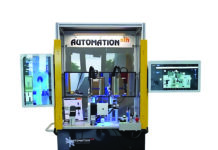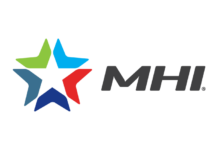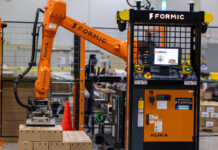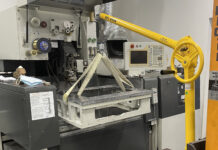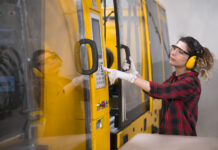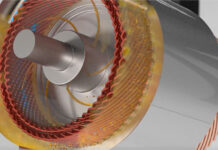Although it is a subsidiary of an OEM that has been in existence for 84 years, 2015 marked a particularly important milestone for KHK Co., LTD. That’s the year it established a direct-sales footprint in the United States—namely in Mineola, New York—after years of marketing its metric stock gears through a global network of distributors; a model it still utilizes beyond North America. The reason? “With increasing globalization, and the need for drop-in aftermarket metric gearing for all manner of equipment, we saw a great potential for market growth and wanted to position ourselves to service those company’s needs,” according to General Manager Brian Dengel. “The growth we’ve experienced has been quite encouraging.”
Founded in 1935 in the Saitama Prefecture north of Tokyo, Japan, the Kohara Gear Industry Co., Ltd., is an established manufacturer and supplier of stock metric gears to companies located around the world. KHK USA is its primary North American distribution point with various satellite warehouse placed as needed. While some previous distributors have retained limited sales rights in a grandfathered fashion, the predominant trend is a direct relationship between KHK and its customers throughout North America, and sometimes further south.
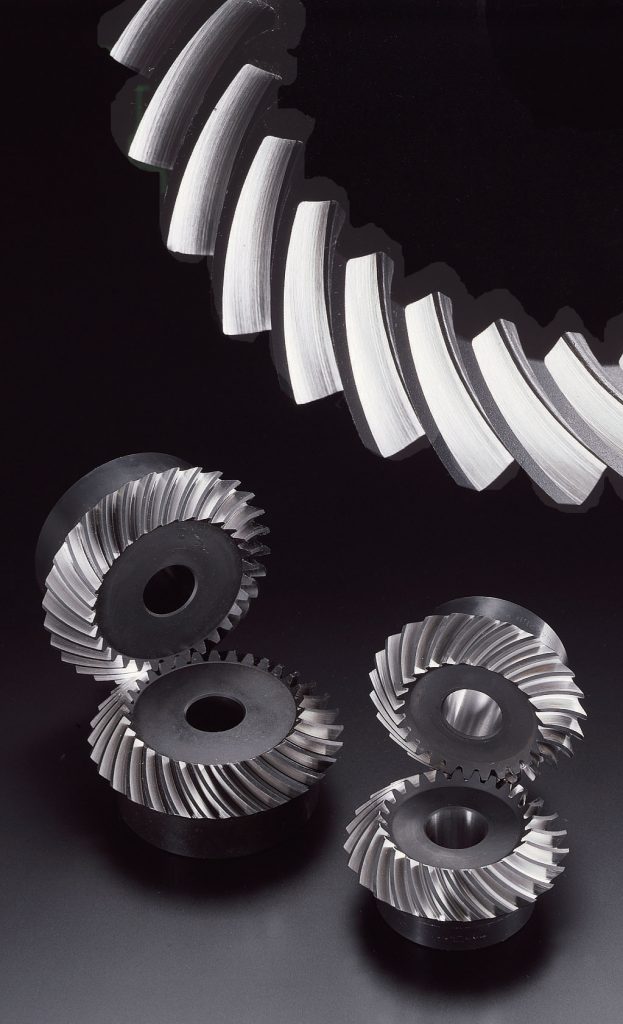 One benefit to these markets involves blazing fast lead times. Just a sampling of its stock items includes spur, pinion, helical, ring and internal, miter, bevel and worm gears, in addition to gear racks. It also provides inch gears, screw gears, and gearboxes. And with some 20,000 stock keeping units (SKUs) in inventory, about 6,000 are blanks ready for immediate secondary customization (also known as the “J” series), shipping in three days on average. Plus, there are no quantity limitations — buy one gear, or buy a thousand; all according to your needs. The company even offers a service providing three-day shipping on any gear that, for whatever reason, must be sent from Japan for a quite reasonable $25 surcharge.
One benefit to these markets involves blazing fast lead times. Just a sampling of its stock items includes spur, pinion, helical, ring and internal, miter, bevel and worm gears, in addition to gear racks. It also provides inch gears, screw gears, and gearboxes. And with some 20,000 stock keeping units (SKUs) in inventory, about 6,000 are blanks ready for immediate secondary customization (also known as the “J” series), shipping in three days on average. Plus, there are no quantity limitations — buy one gear, or buy a thousand; all according to your needs. The company even offers a service providing three-day shipping on any gear that, for whatever reason, must be sent from Japan for a quite reasonable $25 surcharge.
As Dengel explains it, the company’s products can basically be broken into four categories: “First, there are the standard stock gears just as they are stored in the KHK stockroom,” he says, “Then there are the custom-made gears that are made to order to the customer’s specifications. Then there are items with secondary operations — standard stock gears with customer specified secondary operations — and then the J series, which are standard stock gears with KHK specified secondary operations that can include enlarging the bore, adding a keyway, or adding tapped holes. These modifications generally require no more than two working days and form the core of KHK’s BTO (Built to Order) system.
Another service KHK’s North American customers enjoy is the engineering expertise it provides. It is capable of stepping in and providing whatever level of assistance an end user requires — Dengel himself performs in this role, along with other staff engineers — including design suggestions, metallurgical challenges, process improvement, and hardening process such as laser finishing, which creates no distortion. The company also offers free 3D CAD models on its website, providing design engineers with a drop-in component rather than having to calculate the proper gear geometry for their assembly.
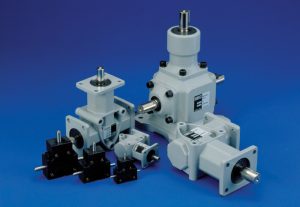 The gear selection process is critical to the ease of use for the customer when choosing stock gearing, or blanks with slight modifications. For this reason, KHK is constantly updating its catalogs as well as offering it in a number of different formats including digital, PDF, and print according to the customer’s preference. Whatever the format, the end user is able to select gears based on specification requirements involving measurements, shapes, precision grades such as JIS, DIN and AGMA, pitch such as modules and DP, hardness, polish or lack thereof, and also strength-related issues such as allowable torque. Usage guidelines, etc., are also a plus. The primary benefit of the online digital catalog is that it is searchable based on catalog number, tooth pitch (module), number of teeth, and bore size.
The gear selection process is critical to the ease of use for the customer when choosing stock gearing, or blanks with slight modifications. For this reason, KHK is constantly updating its catalogs as well as offering it in a number of different formats including digital, PDF, and print according to the customer’s preference. Whatever the format, the end user is able to select gears based on specification requirements involving measurements, shapes, precision grades such as JIS, DIN and AGMA, pitch such as modules and DP, hardness, polish or lack thereof, and also strength-related issues such as allowable torque. Usage guidelines, etc., are also a plus. The primary benefit of the online digital catalog is that it is searchable based on catalog number, tooth pitch (module), number of teeth, and bore size.
At its launch into the North American market in 2015, Dengel says that metric gears made up a relatively small percentage of the total market from drop-in and changeout gears—about 20 percent — but growth has come over time and is expected to continue as more foreign made equipment and systems are purchased for us in the United States, Canada, and Mexico. KHK is clearly poised to seize that moment and continue its upward trajectory as a premier manufacturer and provider of stock and custom metric gearing.

